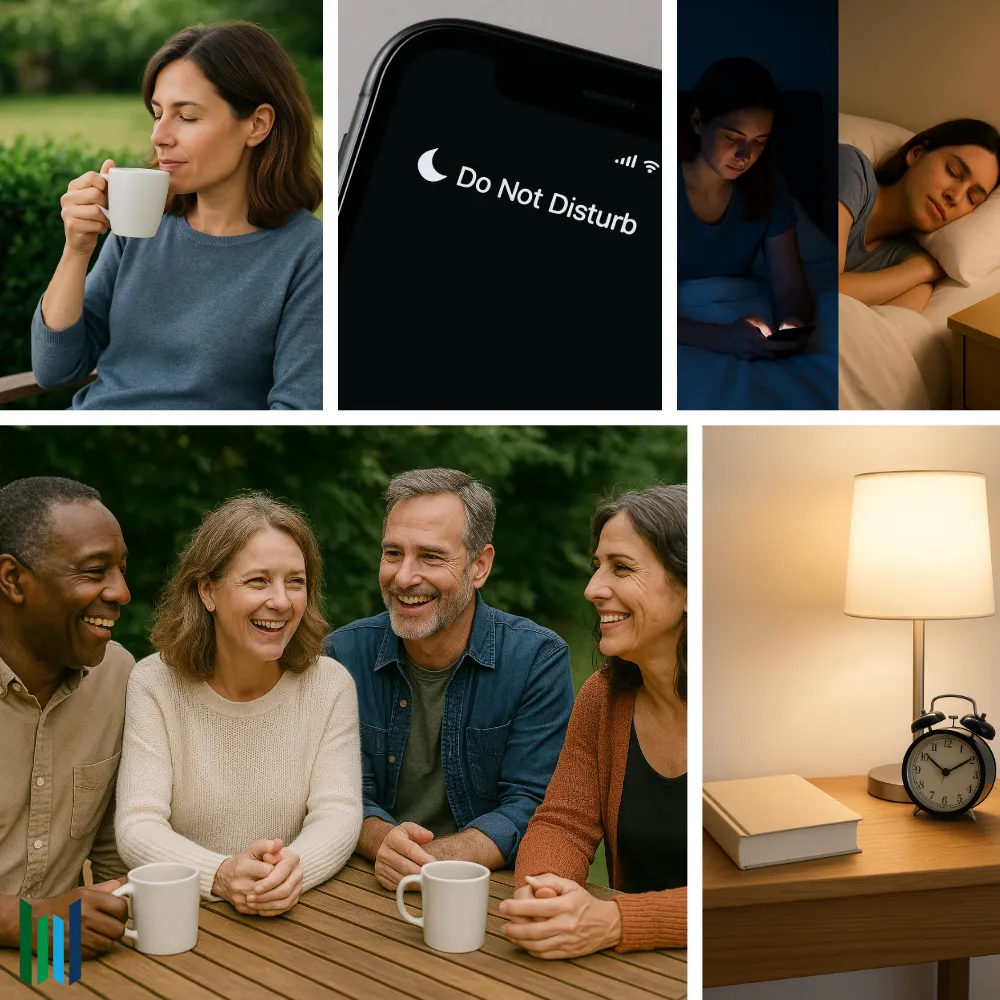
Digital Detox: Finding Calm in a Busy Digital World
Digital Detox:
Finding Calm in a Busy Digital World
Do you reach for your phone before you even get out of bed? Or find yourself scrolling long after you meant to switch off for the night?
In today’s busy digital world, constant notifications and an endless stream of content compete for our attention, often leaving us stressed, distracted, and mentally exhausted.
A digital detox isn’t about giving up technology altogether; it’s about setting healthy boundaries so you can reclaim your focus and energy.
Why It Matters
Our brains are not built for nonstop stimulation. Research shows that excessive screen time can increase anxiety, reduce focus, and interfere with sleep.
One well-documented example is blue light from screens, which suppresses melatonin and delays sleep, making late-night scrolling especially harmful to rest.
Just like the body needs recovery after physical activity, the mind needs downtime away from digital noise to recharge.
How Tech Companies Hook You In
It’s no accident that it’s hard to put your phone down.
Social media and app developers use psychology to keep you engaged for as long as possible. Infinite scroll, pull-to-refresh, and unpredictable notifications work like slot machines, triggering your brain’s reward system with little bursts of dopamine.
When you realise this isn’t about a lack of willpower, but about deliberate design, it can feel empowering. Instead of blaming yourself, you can see the bigger picture and start pushing back.
Setting boundaries with your devices becomes less about self-control and more about protecting your mental space from systems designed to hijack it.
And remember, you don’t need to reply instantly to every message.
You can set a boundary by briefly letting people know your situation. A simple line like, “I’m busy right now, but I’ll reply when I can,” respects the other person while keeping your focus where you want it.
Signs You Might Need a Digital Detox
Feeling restless without your phone.
Checking notifications compulsively.
Struggling to focus on one task.
Sleep is affected by late-night scrolling.
If several of these sound familiar, your mind may be craving a reset.
Although this post focuses on phones, the device most of us use constantly, a digital detox can also apply to laptops, tablets, smartwatches, gaming, or even streaming. The bigger picture is about stepping back from any screen time that drains your energy or focus.
Practical Detox Strategies
Set device-free zones: for example, keep phones charging in another area overnight instead of beside your bed. Use an alarm clock to wake you, if needed.
Create screen-free rituals: replace morning scrolling with a cup of tea, talking to family or a neighbour, or a short walk.
Limit notifications: turn off non-essential alerts, no pings from shopping apps, games or work apps, and keep only what truly matters.
Use Do Not Disturb or app limits: schedule quiet hours (e.g., 8:30pm–7am) so your phone isn’t dictating your attention.
Try a mini-detox: commit to half a day or a weekend without social media, and notice how much lighter your mind feels.
The Benefits
Even small changes can bring noticeable improvements. People often report better focus, less stress, deeper sleep, and more genuine connections in daily life. In many cases, simply creating phone-free spaces or times is enough to restore a sense of calm and control.
A digital detox doesn’t mean quitting technology; it’s about using it on your terms.
Why not experiment this week?
Set your phone to Do Not Disturb after 8:30pm tonight, and see how much calmer and more present your evening feels.
Reclaiming your attention is one of the most powerful steps you can take toward balance in a world that’s always “on.”
